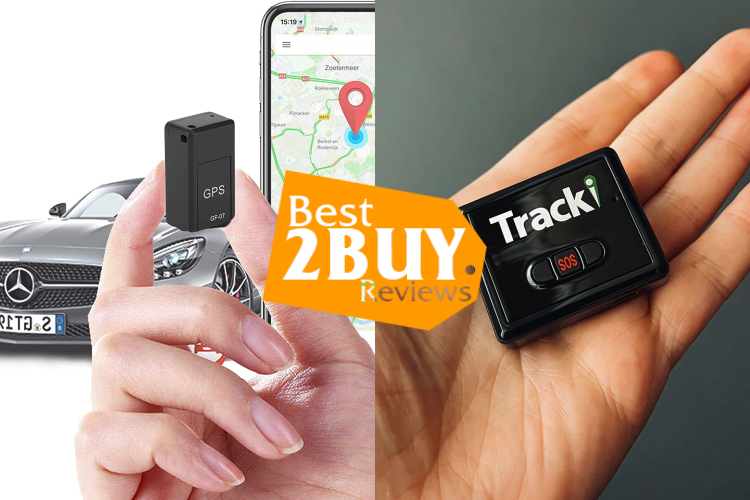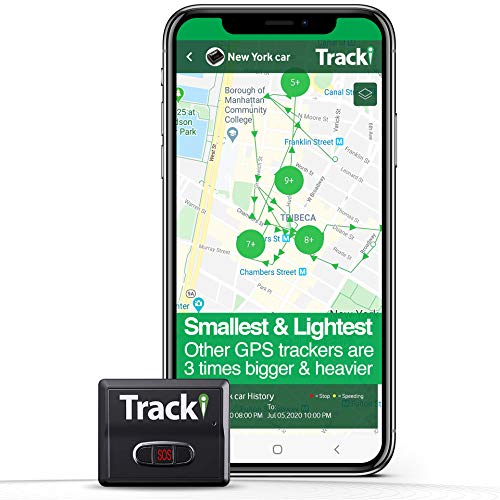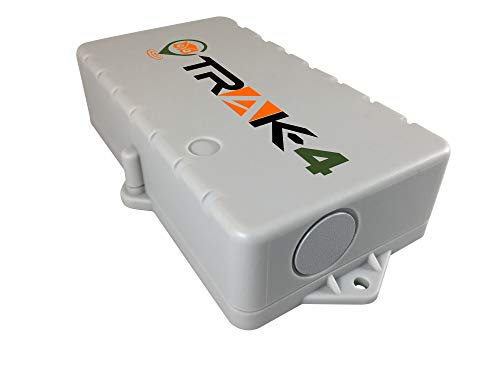How to Choose the GPS Trackers
The Evolution and Impact of GPS Trackers: Navigating the World of Location Technology

- 1. The Evolution and Impact of GPS Trackers: Navigating the World of Location Technology
- 1.1. What Is A GPS Tracking Device?
- 1.2. How Do GPS Trackers Work?
- 1.3. Types of GPS trackers And Their Benefits
- 1.4. What To Look For When Buying a GPS Tracker
- 1.4.1. Real-Time Tracking
- 1.4.2. Alerts
- 1.4.3. Accessibility
- 1.4.4. Historical Reports and Summary
- 1.4.5. User-Friendly Design
- 1.5. Pricing
- 1.6. Conclusion
Compact GPS trackers are tiny transmitters that enable you to monitor the current whereabouts of individuals or possessions that hold significant importance for you, such as your children, elderly parents, motorcycles, cars, and even international cargo shipments. Once the tracker is activated, you can easily access the location of your valuables through a personal computer, tablet, or smartphone. These convenient devices are user-friendly and come at an affordable price, requiring no specialized technical expertise.
What Is A GPS Tracking Device?
A portable GPS tracking device enables users to monitor and trace its location, with the most frequent application being in vehicles as part of car tracking systems.
Although tracking devices share similarities with in-car navigation systems, there are notable distinctions. In-car GPS navigation systems display the driver's location on a digital map and offer directions to reach a specified destination. Conversely, GPS trackers employ GPS technology to monitor a vehicle's present location and record its travel history. Subsequently, the GPS data is transmitted to a computer, smartphone, or tablet.
How Do GPS Trackers Work?
GPS trackers establish a connection with a constellation of satellites to ascertain their location. Employing a technique known as trilateration, these trackers utilize the positions of three or more satellites within the Global Navigation Satellite System (GNSS) network and the distances between them to calculate latitude, longitude, elevation, and time.
Mastering the operation of a GPS tracker is straightforward. Typically situated in a vehicle, the tracker derives power from the onboard diagnostics (OBD-II) connector, a cigarette lighter, an accessory socket, or an internal battery. The gathered information is then transmitted to software, enabling users to compile and analyze the data.
The interaction between GPS trackers and software involves various mechanisms. Active trackers, capable of offering users a real-time global positioning view, can be integrated into a managed service for comprehensive monitoring.
In contrast, passive trackers are often more budget-friendly. They store GPS data for subsequent retrieval, providing a cost-effective option for users who only need to review the information at a later time.
Types of GPS trackers And Their Benefits
GPS trackers offer a sense of independence to individuals who may otherwise feel vulnerable without a safety net. Additionally, they serve the practical purposes of locating lost items and monitoring the whereabouts of loved ones without being intrusive.
Various types of GPS trackers cater to specific needs:
- GPS Trackers for Kids: These devices assist parents in verifying their children's whereabouts, whether at school, home, or a friend's house. Advanced models adapt to a child's routine and send alerts in case of unexpected deviations.
- GPS Trackers for Pets: Designed to keep track of the location of dogs or cats, especially those prone to wandering. Some models come with built-in lights for visibility in the dark.
- GPS-Enabled Medical Alerts: These trackers share the wearer's location with a professional monitoring center when help is requested. Certain devices also allow caregivers to monitor the wearer's location through a dedicated app.
- GPS Trackers for Alzheimer's or Dementia Patients: Equipped with geofencing capabilities, these trackers provide alerts if a loved one strays beyond a predefined area, offering peace of mind to caregivers.
- Vehicle Trackers: Ideal for recovering stolen cars, these trackers plug into the car's OBD port and may include additional features such as speed alerts and crash detection.
- Personal Safety Apps: These applications share your location with friends or emergency services at the press of a button. Some apps discreetly record the surrounding environment for added security.
In addition to these specific use cases, GPS trackers can be employed for general item tracking. For instance, placing a GPS tracker inside luggage ensures its location can be traced in case of loss. In such cases, basic GPS functionality is often sufficient, without the need for additional features.
What To Look For When Buying a GPS Tracker
When searching for the GPS tracker that suits your requirements, it's beneficial to be aware of the key features that a reliable GPS tracker should possess. These features include:
Real-Time Tracking
The primary feature to prioritize when selecting any tracker is real-time monitoring. Real-time monitoring entails tracking the location of a person, object, or vehicle as it moves from one point to another on a map. Fortunately, most GPS trackers come equipped with this capability, ensuring that you receive accurate location updates at regular intervals, typically every 10, 30, or 60 seconds. This functionality proves particularly valuable when monitoring a single vehicle or an entire fleet. Beyond merely providing location information, these trackers offer insights into the current activity of your vehicles, such as idling or speeding, enhancing their utility for effective monitoring.
Alerts
Alerts play a crucial role in GPS trackers, offering various types of notifications. One essential alert is the speed alert, which keeps you informed when the tracked person, object, or vehicle is moving at an exceptionally high speed. Another significant alert is the motion alert, triggering notifications when the wearer or the vehicle carrying the tracker is in motion. The tracking device can also detect idling or excessive stops of your device.
Additionally, the geo-fencing alert is a valuable feature that allows you to define a specific safety zone for your tracker. Whenever the tracker surpasses the boundaries of this designated area, an immediate alert is sent to you. Finally, the SOS alert is a critical function that enables the wearer or user to swiftly call for help during emergencies or crises.
Accessibility
In today's interconnected world, it is crucial to invest in a tracker that enables remote access to its data from any location worldwide. Additionally, it is essential that this data can be conveniently accessed through diverse platforms, such as mobile apps or websites. A desirable tracker should possess a range of tracking capabilities, including GPS, GSM, Bluetooth, and WiFi functionalities. Lastly, global accessibility is key, ensuring that you can effortlessly retrieve tracker data no matter where you are in the world.
Historical Reports and Summary
If you are a business owner or manager, investing in a tracker capable of generating historical reports and summaries is highly beneficial. Incorporating such features allows you to maintain greater consistency and timeliness in your reporting. With these capabilities, overseeing fleets of vehicles and conducting asset inventories becomes a more streamlined and less cumbersome process. Certain devices even offer data spanning up to five years, providing valuable metrics that empower you to efficiently monitor and manage your business operations.
User-Friendly Design
Many individuals who refrain from utilizing GPS trackers often feel daunted by a misconception that these devices are overly intricate and consequently challenging to operate. However, this is not the case when you opt for a high-quality tracker. When exploring options for a tracker, seek out one that provides a user-friendly interface, ensuring a straightforward user experience. There are even devices available in the market that are ready to use right out of the box.
Pricing
The prices of tracking devices range from $60 to $300, depending on factors such as brand, associated services, international coverage, GPS chipset, design, and battery life. GPS trackers necessitate both cellular and software services, resulting in a monthly service fee.
- Tracker Costs: The initial cost for the tracker itself varies from $60 to $300. It's important to be aware of the features included in the price.
- Monthly Subscription Costs: The monthly fee for software and cellular services ranges from $6 to $30. Some manufacturers may not incorporate the cellular (SIM) costs into the service fee, so it's advisable to inquire about the specific inclusions and exclusions in the fee structure.
Conclusion
GPS trackers have transformed from their initial military applications to becoming essential instruments across diverse facets of our everyday existence. They play a crucial role in optimizing business processes and guaranteeing individual safety, demonstrating a wide-ranging influence. As technological progress persists, we anticipate ongoing advancements in GPS tracking, heightening the significance of these devices in our navigation and interaction with the world. Nevertheless, it is imperative to address the ethical and privacy concerns linked with this technology to ensure its conscientious and advantageous application within society.









